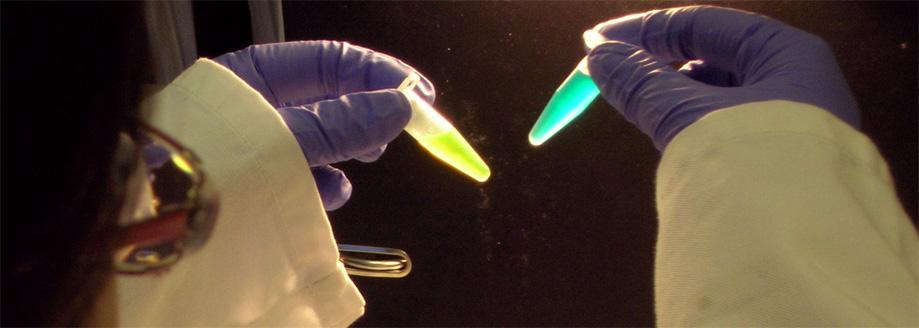
Overview
We are interested in the control of chromosomal DNA replication in eukaryotic cells.
Our research focuses on the initiation step of DNA replication in human cells. In particular, we are investigating the specification, the localisation, and the activation of DNA replication origins in the human genome. We also look at the function of small non-coding RNAs during the initiation of DNA replication at these sites.
Before a cell can divide, it needs to replicate its chromosomal DNA. A key regulation step for the cell division cycle is the initiation of chromosomal DNA replication at the G1-to-S phase transition. We have established a cell-free system from human cells that reconstitutes this process in a test tube. We have used this experimental system to purify and to characterise essential initiation factors. With this approach, we have identified the small non-coding Y RNAs as essential initiation factors in vertebrate cells. A key objective of our ongoing work is the elucidation of molecular mechanisms by which these small non-coding Y RNAs exert their function during the initiation of DNA replication in vertebrate cells.
Our current focus, however, is directed at the genome itself, to the specification and activation of DNA replication origins, those sites on the genome where DNA replication initiates. In a collaborative effort, we have developed a series of related methods to map where active DNA replication origins are located on the human genome. This 'initiation site sequencing' approach (ini-seq) is built on the cell-free initiation system we have developed earlier, and has led to the identification of tens of thousands of distinct origin sites on the human genome.
Most recently, we have discovered that DNA replication origin sites in human cells are specified epigenetically by the oxidation of 5-methyl-deoxycytidines in G1 phase, before they become activated as replication origins in S phase. This dynamic epigenetic specification in human cells is different from the canonic origin specification by genetic DNA sequence elements as found in yeast and bacteria. Our current research is therefore focussed on characterising further this epigenetic origin site specification, its dynamics during the cell cycle, its biogenesis, and its functional relevance for origin activation.
